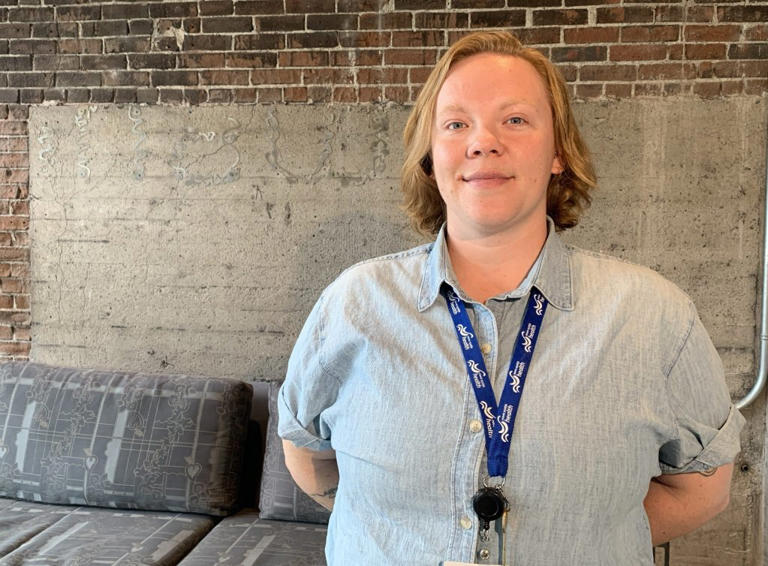Story by Alex Cooke •15h

Emily Percival-Paterson is a harm reduction consultant for public health at Nova Scotia Health.© Zack Power/Global News
ANova Scotia harm reduction expert is concerned about the rising number of overdoses after a youth died and three other people were hospitalized due to drug poisoning over the weekend.
On Sunday, a teenager died from a suspected overdose and two youths were taken to hospital. In a separate incident later that evening, a 34-year-old was also taken to hospital due to a suspected overdose.
Nova Scotia Health has issued a drug alert following "a cluster of suspected opioid poisonings" in the Cole Harbour area.
Emily Percival-Paterson, harm reduction consultant for public health at Nova Scotia Health, said they are seeing an increase of drug poisonings.
"That's really to do with how unregulated and unpredictable the drug supply is," she said, noting that fentanyl is "increasingly present in our province."
"We don't have routine drug checking services for people who use drugs, so it's hard to completely quantify ... but we do know that fentanyl is the substance that's driving the drug poisoning crisis in Canada."
According to Nova Scotia health, there have been 35 confirmed or probable opioid toxicity deaths reported so far in 2023.
Percival-Paterson said anyone is at risk of an overdose, but young people could be particularly vulnerable because they may be experimenting with drugs for the first time and don't have a tolerance, and they may also be less knowledgeable about how to keep themselves safe.
They could also be more susceptible due to their size.
"Their bodies may be smaller, their tolerances may be very different," she explained. "And so amounts that a full grown adult might use can affect them differently."
Cpl. Guillaume Tremblay, public information officer for the Halifax RCMP, said police are investigating what was in the drugs that were involved in the incidents over the weekend.
"Those pills or powder will be sent to a lab, and we'll know exactly what was in those drugs," he said, adding the teen's death is under investigation.
"Our hearts and thoughts are with the family at this time ... it's a really difficult situation. I really feel for them."
Anyone who suspects an overdose or sees someone in medical distress should call 911, Tremblay said.
Common signs of a drug overdose could include:
Slow or absent breathing
Blue or grey lips and fingers
Dizziness and confusion
Severe drowsiness or inability to wake a person up
Snoring, choking or gurgling noises
Naloxone kits, which are used for opioid overdoses, are available free of charge through the Nova Scotia Take Home Naloxone Program.
Percival-Paterson said the illicit drug market is getting “increasingly unpredictable and unregulated," and said safe supply programs can help reduce the risk of people overdosing.
Research indicates that such programs increase safety and do not contribute to drug poisoning deaths.
"When we are able to support people with regulated substances that are what they're expecting, that creates a lot more safety," she said.
She added: “It’s really important that we all educate ourselves around why people use drugs as well, so we can reduce the stigma, because that’s one of the big reasons why people don’t access help."
-- with files from Zack Power
No comments:
Post a Comment